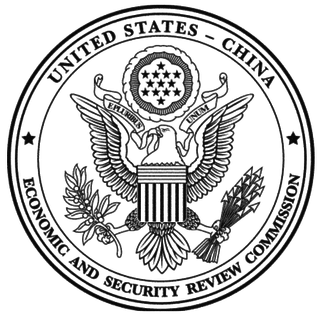History
The previous review of U.S. ocean policy had been conducted thirty-five years before by the Stratton Commission, published in 1969. To account for changes in the intervening years, the U.S. Congress decided to form the Commission on Ocean Policy to conduct a new review, and develop recommendations for future ocean policy. The Oceans Act of 2000 was passed in the Senate June 6, 2000, and become effective on January 20, 2001.
The commission is composed of 16 members. Per the Act, the House of Representatives and Senate Majority each nominated eight people, and the President appointed four from each list.
The commission began its work in September 2001 with a series of nine regional meetings and 18 additional site visits in every coastal region of the United States and the Great Lakes. The Commission heard testimony from 445 experts, including many of the nation's top ocean scientists and researchers, environmental organizations, industry, citizens, and government officials, as well as receiving written testimony from countless others.
The Commission released its Preliminary Report on April 20, 2004, for review by the nation's Governors and other stakeholders.
On September 20, 2004, the Commission submitted its Final Report to the President and Congress, "An Ocean Blueprint for the 21st Century". On December 19, 2004, the Commission officially expired as called for under the Oceans Act of 2000.

The United States Senate Committee on Commerce, Science, and Transportation is a standing committee of the United States Senate. Besides having broad jurisdiction over all matters concerning interstate commerce, science and technology policy, and transportation, the Senate Commerce Committee is one of the largest of the Senate's standing committees, with 28 members in the 117th Congress. The Commerce Committee has six subcommittees. It is chaired by Sen. Maria Cantwell (D-WA) with Sen. Ted Cruz (R-TX) as Ranking Member. The majority office is housed in the Dirksen Senate Office Building, and the minority office is located in the Hart Senate Office Building.

Leon Edward Panetta is an American retired politician and government official who has served under several Democratic administrations as secretary of defense (2011–2013), director of the CIA (2009–2011), White House chief of staff (1994–1997), director of the Office of Management and Budget (1993–1994), as well as a U.S. representative from California (1977–1993).

The United States Senate Select Committee on Intelligence is dedicated to overseeing the United States Intelligence Community—the agencies and bureaus of the federal government of the United States that provide information and analysis for leaders of the executive and legislative branches. The Committee was established in 1976 by the 94th Congress.

The Senate Committee on Indian Affairs is a committee of the United States Senate charged with oversight in matters related to the American Indian, Native Hawaiian, and Alaska Native peoples. A Committee on Indian Affairs existed from 1820 to 1947, after which it was folded into the Committee on Interior and Insular Affairs. A new Native Affairs Committee was created in 1977, initially as a select committee, as a result of the detachment of indigenous affairs from the new Committee on Energy and National Resources, which had succeeded the old Committee on Interior and Insular Affairs. The committee was initially intended to be temporary, but was made permanent in 1984. The committee tends to include senators from Western and Plains states, who have more Native American constituents.

James David Watkins was a United States Navy admiral and former Chief of Naval Operations who served as the United States Secretary of Energy during the George H. W. Bush administration, also chairing U.S. government commissions on HIV/AIDS and ocean policy. Watkins also served on the boards of various companies and other nongovernmental organizations and as the co-chair of the Joint Ocean Commission Initiative.

The Environmental Quality Improvement Act of 1970 is a United States environmental law which was passed to work in conjunction with the National Environmental Policy Act of 1969 (NEPA). One of the two major purposes of the Act was to authorize the creation of an Office of Environmental Quality to provide the professional and administrative staff needed for the Council on Environmental Quality. The second major purpose was to "assure that each Federal department and agency conducting or supporting public works activities which affect the environment shall implement the policies under existing law". To accomplish these purposes, the act gave more responsibilities to the chairman of the Council on Environmental Quality in his new role as director of the Office of Environmental Quality.

The Intelligence Reform and Terrorism Prevention Act of 2004 (IRTPA) is a 235-page Act of Congress, signed by President George W. Bush, that broadly affects United States federal terrorism laws. The act comprises several separate titles with varying subject issues. It was enacted in response to the terror attacks of September 11, 2001.

The Magnuson–Stevens Fishery Conservation and Management Act (MSFCMA), commonly referred to as the Magnuson–Stevens Act (MSA), is the legislation providing for the management of marine fisheries in U.S. waters. Originally enacted in 1976 to assert control of foreign fisheries that were operating within 200 nautical miles off the U.S. coast, the legislation has since been amended, in 1996 and 2007, to better address the twin problems of overfishing and overcapacity. These ecological and economic problems arose in the domestic fishing industry as it grew to fill the vacuum left by departing foreign fishing fleets.

The U.S. Commission on Civil Rights (CCR) is a bipartisan, independent commission of the United States federal government, created by the Civil Rights Act of 1957 during the Eisenhower administration, that is charged with the responsibility for investigating, reporting on, and making recommendations concerning civil rights issues in the United States. Specifically, the CCR investigates allegations of discrimination based on race, sex, national origin, disability. In March 2023, Rochelle Mercedes Garza was appointed to serve as Chair of the CCR. She is the youngest person to be appointed to the position.
Congressional oversight is oversight by the United States Congress over the executive branch, including the numerous U.S. federal agencies. Congressional oversight includes the review, monitoring, and supervision of federal agencies, programs, activities, and policy implementation. Congress exercises this power largely through its congressional committee system. Oversight also occurs in a wide variety of congressional activities and contexts. These include authorization, appropriations, investigative, and legislative hearings by standing committees; which is specialized investigations by select committees; and reviews and studies by congressional support agencies and staff.

The Oceans Act of 2000 established the United States Commission on Ocean Policy, a working group tasked with the development of what would be known as the National Oceans Report.
The Privacy and Civil Liberties Oversight Board (PCLOB) is an independent agency within the executive branch of the United States government, established by Congress in 2004 to advise the President and other senior executive branch officials to ensure that concerns with respect to privacy and civil liberties in the United States are appropriately considered in the development and implementation of all laws, regulations, and executive branch policies related to terrorism.

The Commission on the Future of the United States Aerospace Industry (CFUSAI) was formed jointly by United States President George W. Bush and the United States Congress in 2001. Its first public meeting was held on November 27, 2001, and its final report was given on November 18, 2002.
The Joint Ocean Commission Initiative is a bipartisan, collaborative group in the United States that aims to "accelerate the pace of change that results in meaningful ocean policy reform." The Joint Initiative was established by the members of two major U.S.-based oceans commissions: the Pew Oceans Commission and the United States Commission on Ocean Policy. It was originally co-chaired by former White House Chief of Staff Leon Panetta and former Chief of Naval Operations Admiral James D. Watkins, chairs of the Pew and U.S. Ocean Commissions, respectively. Currently, the Joint Initiative is led by a Leadership Council, which is co-chaired by Christine Todd Whitman, former EPA Administrator under President George W. Bush and former governor of New Jersey, and Norman Y. Mineta, Secretary of Commerce under President Bill Clinton and Secretary of Transportation under President George W. Bush.

The Arctic policy of the United States is the foreign policy of the United States in regard to the Arctic region. In addition, the United States' domestic policy toward Alaska is part of its Arctic policy.
The role of women in the United States armed services became an important political topic in 1991. Women military personnel had engaged in combat in the most recent U.S. military actions: Grenada in 1983 Panama in 1989, and the Gulf War in 1991. Senator William V. Roth (R-DE) introduced a Senate bill in 1991 to clarify women's roles in the armed forces, including combat.

The United States–China Economic and Security Review Commission is an independent commission of the United States government legislative branch. It was established on October 30, 2000, through the Floyd D. Spence National Defense Authorization Act.

The space policy of the United States includes both the making of space policy through the legislative process, and the implementation of that policy in the United States' civilian and military space programs through regulatory agencies. The early history of United States space policy is linked to the US–Soviet Space Race of the 1960s, which gave way to the Space Shuttle program. At the moment, the US space policy is aimed at the exploration of the Moon and the subsequent colonization of Mars.
Ocean governance is the conduct of the policy, actions and affairs regarding the world's oceans. Within governance, it incorporates the influence of non-state actors, i.e. stakeholders, NGOs and so forth, therefore the state is not the only acting power in policy making. However, ocean governance is complex because much of the ocean is a commons that is not ‘owned’ by any single person or nation/state. There is a belief more strongly in the US than other countries that the “invisible hand” is the best method to determine ocean governance factors. These include factors such as what resources we consume, what price we should pay for them, and how we should use them. The underlying reasoning behind this is the market has to have the desire in order to promote environmental protection, however this is rarely the case. This term is referred to as a market failure. Market failures and government failures are the leading causes of ocean governance complications. As a result, humankind has tended to overexploit marine resources, by treating them as shared resources while not taking equal and collective responsibilities in caring for them.

The marine policy of the Barack Obama administration comprises several significant environmental policy decisions for the oceans made during his two terms in office from 2009 to 2017. By executive action, US President Barack Obama increased fourfold the amount of protected marine space in waters under United States control, setting a major precedent for global ocean conservation. Using the U.S. president's authority under the Antiquities Act of 1906, he expanded to 200 nautical miles the seaward limits of Papahānaumokuākea Marine National Monument in Hawaiʻi and the Pacific Remote Islands Marine National Monument around the U.S. island possessions in the Central Pacific. In the Atlantic, Obama created the Northeast Canyons and Seamounts Marine National Monument, the first marine monument in the U.S. exclusive economic zone (EEZ) in the Atlantic.











